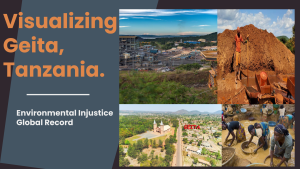Visualizing Geita
xxxx

xxxx

d
On a day to day basis as a healthcare professional, this isn’t very important outside of a teaching and understanding standpoint. A disease is, first and foremost, a disease, and needs to be treated accordingly. While healthcare professionals should educate their patients about risk factors that could lead to their increased likelihood of illness, as well as understand and appreciate why some populations are more vulnerable than others, it does not assist in direct disease treatment.
They used literature, expert interviews, and experiences, and through two workshops, organized the information into a cohesive and succinct description of the challenges of this research and why it is or may be happening.
The WHO, a well respected organization, pushed for a similar framework of 'public health security'.
Legislation in the United States that supported a global model of health care in order to address pandemics and other hazards.
Growing issues with pathogenicity and mutability in diseases that makes it harder to deal with retroactively instead of proactively.
The number of emergency workers lost during 9/11:
343 Fire Fighters - http://nyfd.com/9_11_wtc.html
60 Police Officers
8 EMTs and Paramedics - http://www.world-memorial.org/Tribute/EMS/medics.html
EMS Lesson's Learned from 9/11
http://www.jems.com/articles/2006/08/lessons-learned-911.html
Changes were made to the mutual aid system. Resources that had, in the event, run out or were needed sooner than they were used are now better stocked and available. Some new trainings were implemented.
More stories from 9/11 by EMS
http://www.nyc.gov/html/fdny/pdf/mck_report/ems_response.pdf
Artisanal or Snall Scale Mining in Geita.